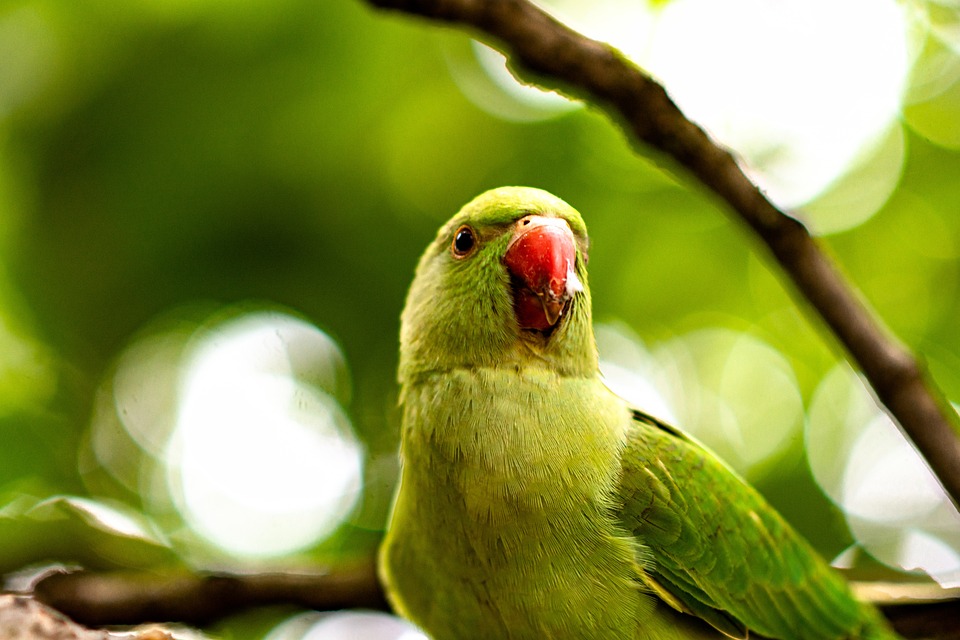Parrots, known for their vibrant plumage and ability to mimic human speech, are also recognized for their remarkable intelligence. These intelligent creatures possess problem-solving abilities that have astounded researchers and bird enthusiasts alike. In this article, we will delve into the fascinating world of parrot behavior, specifically focusing on their response to challenges and puzzles.
Parrots belong to the avian family Psittacidae, which includes species like macaws, cockatoos, and African greys. These birds have evolved to be highly adaptable and possess complex cognitive abilities. Parrots have a large brain-to-body size ratio, comparable to primates, which allows them to perform tasks that require reasoning, logical thinking, and memory recall.
When faced with challenges and puzzles, parrots demonstrate exceptional problem-solving skills. They can analyze and understand cause-and-effect relationships, allowing them to devise strategies to overcome obstacles. In the wild and in captivity, parrots have been observed using tools to accomplish tasks. For example, some species use sticks or twigs to extract food from hard-to-reach places. This behavior showcases their ability to think critically and use objects as extensions of their bodies.
Parrots are highly social animals and have the ability to learn from observing and imitating others. In the wild, they often learn new foraging techniques by observing their flock mates. This social learning aspect plays a crucial role in their ability to adapt and respond to challenges.
To stimulate their minds and keep them mentally engaged, providing parrots with puzzle toys and enrichment activities is crucial. These toys often require the bird to manipulate objects, solve puzzles, or find hidden treats. Puzzle-solving activities not only provide mental stimulation but also help prevent boredom and associated behavioral issues.
Incorporating food foraging into a parrot’s daily routine can be an effective way to challenge their problem-solving skills. Hiding treats within toys or creating foraging stations encourages parrots to use their intelligence to locate and access their food.
Training parrots to perform tricks or tasks can be an excellent way to engage their problem-solving abilities. Teaching them to retrieve objects, identify colors, or solve simple puzzles strengthens their cognitive skills and fosters their natural curiosity.
While parrots, in general, possess problem-solving abilities, the extent to which they respond to challenges may vary among species. Larger parrots, such as macaws and African greys, are often known for their exceptional problem-solving skills.
Engaging parrots in puzzles and challenges can prevent boredom, stimulate their minds, and promote mental well-being. It also provides an opportunity for exercise and enhances their cognitive abilities.
It is important to choose puzzles and challenges that are safe and appropriate for your parrot’s size and species. Avoid small objects that can be swallowed or toys with sharp edges that may cause injury. Always supervise your parrot during puzzle-solving activities.
There are various puzzle toys available in the market specifically designed for parrots. Look for toys that offer different levels of difficulty and are made of bird-safe materials. Popular options include foraging toys, puzzle boxes, and treat-dispensing balls.
While puzzle-solving activities can provide mental stimulation, they should not replace essential social interaction. Parrots are highly social creatures and require regular interaction with their human caregivers and fellow parrots for their overall well-being.
In conclusion, parrots possess remarkable problem-solving abilities, which have been honed through evolution and their highly social nature. By providing them with challenges and puzzles, we can tap into their intelligence and keep their minds stimulated. Engaging in puzzle-solving activities not only benefits their cognitive development but also promotes a happy and fulfilled life for these incredible creatures.









